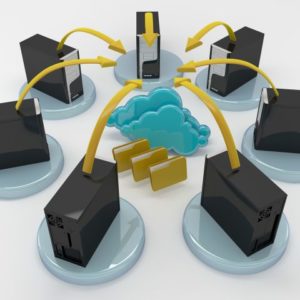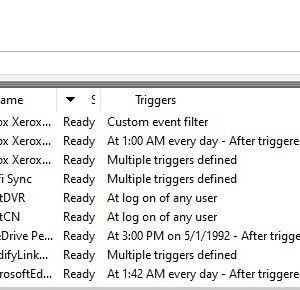I don’t usually post anything unrelated to monitoring, but I have been wondering about this for quite some time. I am also wondering why people only seem to discuss the benefits as opposed to the drawbacks of being “in the cloud”. Here is what being in the cloud gives you: an outsourced IT infrastructure. Let’s think about this for one moment. We are leasing a vehicle instead of buying it — except at “the end of our lease,” we don’t even have the option of buying the car.
When you’re leasing a car, the benefit is you can “upgrade” by leasing another car when your current lease expires or you have the option of buying the car to own. You’d think it’d be a bit similar when “going to the cloud” — in reality, upgrades and changes come whether you wanted them or not. You have no chance of owning the hardware or software and cannot make any custom changes to the hardware/software.
But, what is the alternative? Having that server and software on-premises? Then you’re going to have to ensure someone is responsible for maintaining the hardware and software. Depending on the size of your business, you may need many employees simply to maintain your hardware and software. Employees cost money! Why would I hire more people if I could “go to the cloud” and spend less?
Here is where that thinking is flawed. Even when you “go to the cloud”, you still need employees to maintain your systems. You still need employees to configure the software(s) within the cloud. You still need employees for ensuring network connectivity to get to the cloud resources. The list goes on, and on. In the end, you didn’t significantly reduce your headcount and now you’re also paying monthly fees.
Don’t get me wrong. Obviously “the cloud” has its benefits. Most of those benefits are in favor of the providers, not the consumers. Companies over the years have been making it harder and harder to own software, to the point where some do not even offer a perpetual license whatsoever. Consumers continue to invest in these companies, so they have no reason to let you pay for something once and own it. They will gladly take your money monthly because, in the end, you will end up paying more than you ever would have if you had owned the hardware/software yourself.
Take the example of my website here. I bought a used HP DL380 for $300. I downloaded ESXi for free and installed it on there. I created a virtual machine, got a web server up and running all for no cost. I have about a dozen or so websites on that VM. For my $300, my websites are not bandwidth capped. My websites have nearly unlimited storage due to the number of hard drives my $300 got me. My websites are on dedicated hardware, not contending with anyone else’s.
A quick look at the costs of a virtual private server “in the cloud” shows me that to even come close to my specifications, I would certainly be on the “Ultimate” package which is ~$59.99/month. Not just that, but I would be losing out on performance, storage space, amount of RAM, and the bandwidth is capped. Hopefully, you’re following here: it would take just 5 months for “the cloud” to exceed my “on-premise” cost! This is a small-scale example but in general, you’ll find regardless of which cloud service it is, it will end up costing more over time than if you were to self-host the same hardware/application.
Please don’t take this the wrong way — obviously, there are some things better off being deployed and managed in the cloud. The major point here is most of the time, an on-premise solution will cost you much less. Total Cost of Ownership seems to be less of a factor with businesses over the past several years, I am not sure why that is, but it is! I believe it comes down to the “Cap Ex” vs. “Op Ex” conversation. Businesses are more willing to make operating expenditures (which cloud solutions fall under) than they are willing to make capital expenditures (which on-premise solutions fall under).
Ending the rant here, for now. I am NOT a “cloud hater”, I just feel strongly that some things don’t belong in there. Imagine a cloud service that gets compromised. Imagine the amount of stolen proprietary data, stolen identities, and worse. Not only can it happen, it already has. Let’s never forget the CONS and RISKS of going to the cloud.




